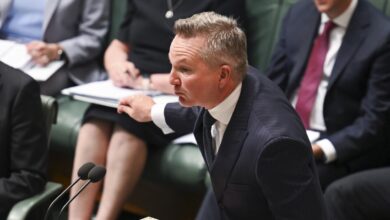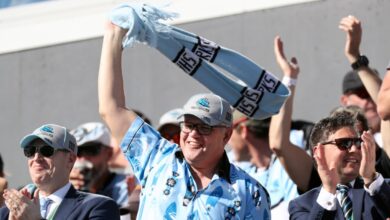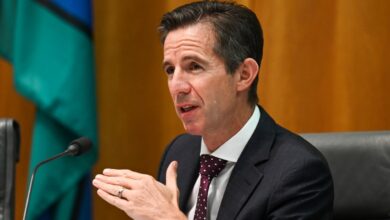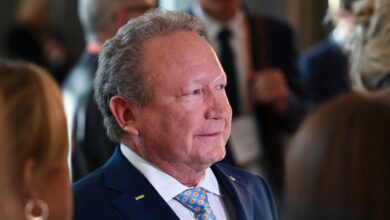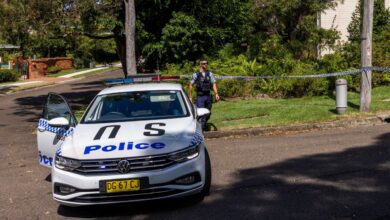Barnaby Joyce has warned Australians to be ‘hesitant’ and ‘cautious’ when faced with emotional appeals about the Indigenous Voice to Parliament.
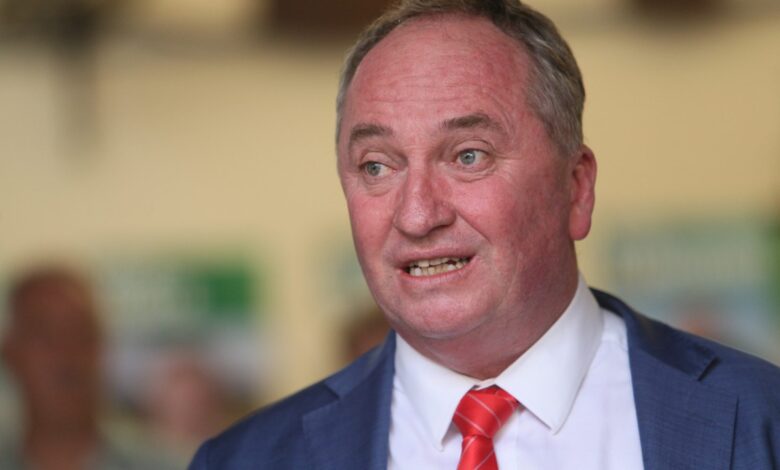
Barnaby Joyce has warned Australians to be cautious when faced with emotional appeals about the Indigenous Voice to Parliament.
The former Nationals leader spoke to Sky News Australia’s Kieran Gilbert following the Prime Minister’s emotional press conference confirming the wording for the proposed Voice to Parliament referendum.
Prime Minister Albanese struggled to hold back tears while making the announcement alongside members of the government’s referendum advisory group.
However Mr Joyce said the appeal had done nothing to shift his position
“I’m very hesitant and cautious about the guilt complex,” Mr Joyce said.
“That is not an argument, that’s an emotion. And this has got to be built around arguments and cogency.”
Mr Joyce said the core principle at the heart of the Voice debate was whether we should insert a provision into Constitution that differentiates Australians by race.
“This is a differentiation based on race,” he said.
“There are Indigenous people that live in Mosman in Sydney, and there are very poor people who live in Moree. Do we say that an indigenous person in Mosman has a better right than a person living on the street in Moree who happens to be Asian? I mean how did we come to that conclusion?”
“The driving manual of Australia – our Constitution – should be as much as possible blind to race, blind to colour, blind to religion, blind to creed. It should be a document which treats every person with equivalence.”
Mr Joyce acknowledged that the Constitution already contained a provision, in section 51(XXVI), granting the government power to make laws for people of a specific race, but he argued the Voice would be much more significant.
“This doesn’t cover just indigenous Australians, it covers all Australians,” he said.
“You see when we put this addition in, and it will go into chapter 9 section 129 I believe, that’s the constitution for all Australians. And that means they have referral to all legislation.”
As the Prime Minister revealed, Australians will be presented with the question:
“A Proposed Law: to alter the constitution to recognise the First Peoples of Australia by establishing an Aboriginal and Torres Strait Islander Voice. Do you approve this proposed alteration?”
The Prime Minister also confirmed that the Voice would have the power to advise both parliament and the executive, despite concerns about the potential consequences of including the executive.
“You having a body that has reference to the executive,” Mr Joyce said.
“Now remember, the executive, that’s the Governor General, that’s the Governor of the Reserve Bank, that’s the Cabinet of Australia, that’s the public service…That’s an immense power.”
“There is no person in cabinet who can start telling the Governor General their views.”
Host Kieran Gilbert challenged Mr Joyce, pointing out the government’s reassurance that the Voice would not have a veto and would simply be providing advice.
But Mr Joyce said this was not the view of legal experts like former High Court Justice Ian Callinan, Professor Greg Craven, and Father Frank Brennan. He said other High Court judges like Murray Gleeson who disagreed with concerns about justiciability had used words like “unlikely” rather than “impossible” or “won’t happen”.
He also said the government’s promises about the powers of the Voice would be meaningless once the referendum passed, since the High Court has responsibility for interpreting the constitution, not the parliament.
“You mightn’t wish it in the parliament, but it’s not your remit anymore, Mr Joyce Said.
“As it’s in the driving document of Australia it’s interpreted by the High Court. And they will determine what the extent of the word consultation means.”
Mr Joyce also raised questions about why the government was so reluctant to release details about what their model for the Voice would look like, including on questions of whether the representatives on the Voice would be elected or selected, and how that process would take place.
“ I don’t know, they won’t tell me,” he said.
“So I say, if they do not trust you with all the details, don’t trust them with your vote.”
Get Best News and Web Services here


